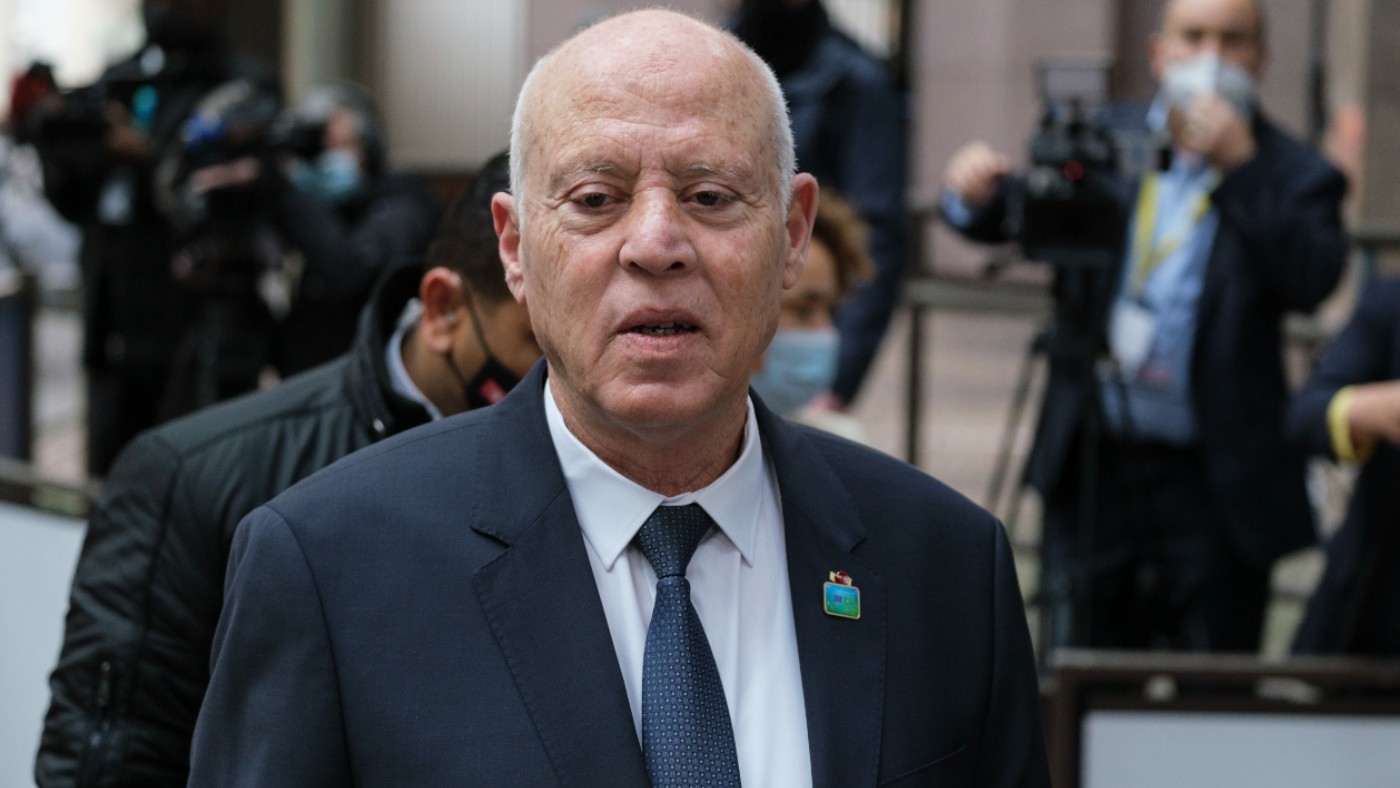Tunisia’s low-turnout election ‘fiasco’
Historically low participation in national poll comes after President Saied’s suspension of the legislature last year

A free daily email with the biggest news stories of the day – and the best features from TheWeek.com
You are now subscribed
Your newsletter sign-up was successful
Tunisians “exhausted” by the country’s political turmoil and economic struggles have stayed away from polling booths in record numbers as less than 9% took part in parliamentary elections.
Ahmed Nejib Chebbi, head of the opposition alliance the National Salvation Front, branded Saturday’s poll a “fiasco” and called for mass protests to demand snap presidential elections. Speaking to Agence France-Presse, Chebbi said that the extremely low turnout showed that President Kais Saied had “lost all legal legitimacy” and that “very, very few Tunisians support Kais Saied’s approach”.
Officials at the country’s Instance Supérieure Indépendante pour les Élections (ISIE) said voter turnout was just 8.8%, the lowest since the country rose up against the autocratic rule of Zein al-Abidine Ben Ali in 2011’s Arab Spring.
The Week
Escape your echo chamber. Get the facts behind the news, plus analysis from multiple perspectives.

Sign up for The Week's Free Newsletters
From our morning news briefing to a weekly Good News Newsletter, get the best of The Week delivered directly to your inbox.
From our morning news briefing to a weekly Good News Newsletter, get the best of The Week delivered directly to your inbox.
Why was voter turnout so low?
Tunisia was generally seen as the only north African country to have made a “successful democratic transition” after the uprisings against autocratic regimes swept through the Arab world in 2011, said the Financial Times.
But after being elected in 2019, President Saied had been accused by opposition parties of making a “power grab”. Saied suspended parliament in July of last year, after which he “started ruling by decree and set about redesigning the political system to give the president sweeping powers”, said the paper.
Saied introduced a new constitution last year, on a turnout of 30%, which has reduced the powers of parliament and given the president extensive authority over the government and the judiciary.
But Saied and his supporters have argued that “such powers were needed to break a cycle of political paralysis and economic decay”, said the BBC.
A free daily email with the biggest news stories of the day – and the best features from TheWeek.com
The result is that the prominence of the country’s political parties has been vastly reduced, with “particular ire” reserved by Saied for the Ennahda movement, part of the political alliance which has “dominated the political scene” in Tunisia since the Arab Spring uprisings, said The Guardian. Most of the country’s major opposition parties boycotted the latest poll.
In place of traditional parties, Saied has instead “encouraged individuals to run in the election on programmes intended to serve their immediate community”, explained the paper, resulting in “1,055 self-funded candidates competing for 161 seats”. It has led to what The Guardian called a “unique” electoral contest that left “many voters unsure of who was running and a number of constituencies only featuring a single candidate on the ballot”.
With little campaigning from the country’s political parties, the build-up to this weekend’s vote was “remarkably low-key”, said the paper – to the point that some voters were “not even aware that an election was taking place”.
What has been happening in Tunisia?
The vote took place “against a backdrop of economic crisis” that has been “marked by soaring food prices and the postponement of an agreement on a loan from the IMF”, added the FT. Monica Marks, assistant professor at New York University’s Abu Dhabi campus, told the paper that Tunisians were now “exhausted” by the country’s economic struggles and broken promises from politicians meant voters had become “disengaged”.
“The World Cup game on Saturday between Morocco and Croatia attracted more interest [than the elections],” she said. “[Saied] is living on borrowed time, almost totally isolated from potential allies and failing to solve the bread and butter problems of Tunisians.”
The head of Tunisia’s electoral commission, Farouk Bouasker, said that the turnout was “modest but not shameful”, instead blaming a new voting system and a lack of paid election campaigning for a voter turnout that failed to reach even 10% of the 9 million electorate.
But “according to reporters on the ground”, said Sky News, the “focus of the public is on the economy”, which has “shrank more than 8% during the COVID pandemic and has seen a very slow recovery.
“Some basic foodstuffs and medicines are no longer available” in Tunisia, said the broadcaster, and more people are opting to attempt “dangerous Mediterranean crossings to try and start again in Europe”.
Sorcha Bradley is a writer at The Week and a regular on “The Week Unwrapped” podcast. She worked at The Week magazine for a year and a half before taking up her current role with the digital team, where she mostly covers UK current affairs and politics. Before joining The Week, Sorcha worked at slow-news start-up Tortoise Media. She has also written for Sky News, The Sunday Times, the London Evening Standard and Grazia magazine, among other publications. She has a master’s in newspaper journalism from City, University of London, where she specialised in political journalism.